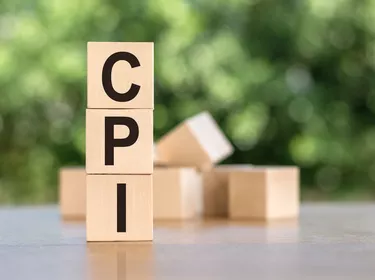
Inflation is a subtle force that lessens the value of your income over time. Economists at the U.S. Federal Reserve Bank consider 2 percent inflation as normal. They expect the economy to maintain this rate, no matter what monetary policy or fiscal actions are implemented. If the Fed sees that the inflation rate is over this 2 percent benchmark, they will take actions, such as raising interest rates, to bring it back down.
Unfortunately, the inflation rate, as measured by the Consumer Price Index (CPI), has been in excess of 5 percent in recent months and is expected to continue. The effects on your budget can be devastating.
Video of the Day
Video of the Day
Here's what's included in the CPI and how changes can affect your budget and cost of living.
If the cost of an item that you must purchase, like gas prices, goes up, then you have to cut back on something else to stay within your budget.
What is the CPI?
The Consumer Price Index (CPI) is a metric produced monthly by the U.S. Bureau of Labor Statistics (BLS) that measures the rate of inflation or deflation. The BLS uses the average change of prices in a market basket of consumer goods and services to measure the percent change in the inflation rate. It measures the price changes for the items in this basket of goods and services for the current month compared to the previous month.
The traditionally reported CPI has two inflation subsets: CPI-U and CPI-W. The CPI-U focuses on urban areas and measures the price changes for all urban consumers and households in Metropolitan Statistical Areas with 2,500 people or more. The CPI-W is slightly more restrictive than the CPI-U since it only includes households that have at least 50 percent of their income from clerical workers or wage-paying jobs.
Consider also: How to Calculate Percent Change for CPI Index
Why Has the CPI Gone Up?
The pandemic has created a number of problems leading to these high inflation rates.
Supply chain problems - The pandemic led to many factory shutdowns which reduced the supply of products available. As the economy picked up, demand increased, putting pressure on prices.
Worker shortages - Many businesses are now understaffed as a result of workers resigning their jobs.
Energy production - Demand for energy fell during the pandemic as many people stayed at home. As a result of reduced production from refineries, energy prices are now going up as demand increases.
Computer chip issues - The demand for computer chips has increased dramatically as the economy picks up. However, the U.S. does not have enough production of computer chips to meet the demand.
Increase in money supply - The Fed has been forced to increase the money supply to fund the pandemic stimulus programs and cover the government's deficit spending. An increased money supply causes more inflation.
None of these problems will go away overnight. The reality is that a higher inflation rate will persist for a while.
Consider also: How Does Inflation Affect the Value of Money?
How Will an Increase in the CPI Affect Your Budget
Inflation means you have to pay more this month for the same goods and services that you got for less last month. When you're on a fixed income, that's a problem.
If the cost of an item that you must purchase, like gas prices, goes up, then you have to cut back on something else to stay within your budget. Inflation forces everyone to rebalance their budgets and lifestyles so they don't have to borrow money or live on credit cards to pay for normal living expenses. Something has to give.
Consider also: Drawbacks in Using CPI as a Measure of the Rate of Inflation
Here are a few ideas to get you started thinking about ways to reduce your living expenses and adapt to inflation:
- Purchase generic or store-brand foods
- Use grocery coupons
- Pack a lunch for work
- Eat out less often
- Skip the morning latte from Starbucks
- Cancel any streaming services you aren't using, like Hulu or Netflix
- Take on a side gig to earn extra income
- Get updated quotes on homeowners and auto insurance
- Refinance your mortgage
Even worse, inflation also reduces the purchasing power of your money. If you get a 3 percent raise but your cost of living goes up 5 percent, then your real income has dropped 2 percent. Some government agencies, like the Social Security Administration, will make cost-of-living adjustments each year in an attempt to keep up with inflation, but quite often, that's not enough.
- TheStreet: What Is Inflation and What Does it Mean for Your Financial Plan?
- CNBC: Inflation is Continuing to Rise—Here’s How it Could Affect Your Money
- Reuters: Analysis: Economists Eye Surging Money Supply as Inflation Fears Mount
- Reuters: U.S. Consumer Prices Post Largest Gain in 13 Years
- Congressional Budget Office: Differences Between the Traditional CPI and the Chained CPI